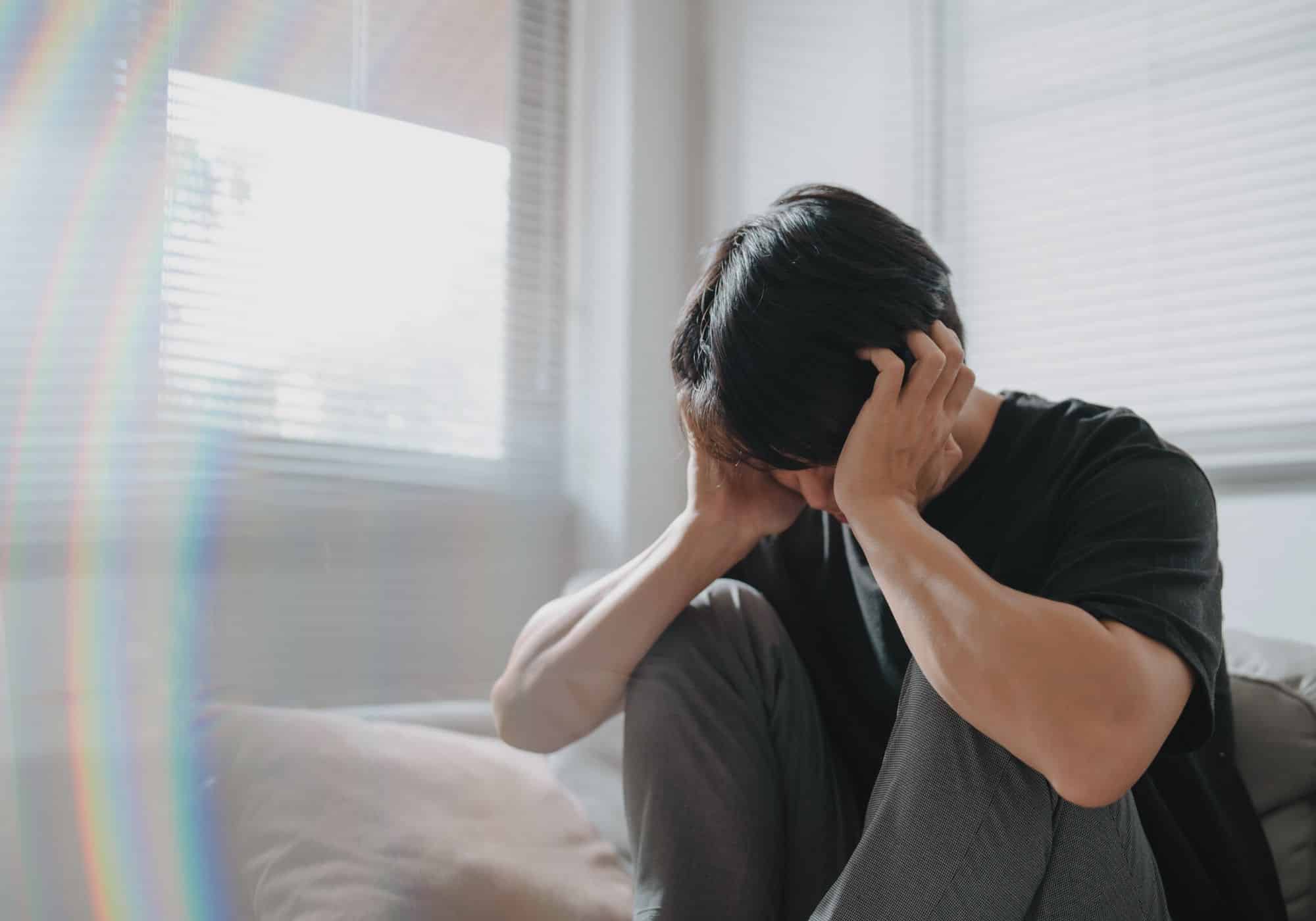What is Benzo Withdrawal?
Benzo withdrawal refers to the range of uncomfortable symptoms that emerge when you abruptly stop using benzodiazepines (benzos). While not typically life-threatening, it can lead to serious complications like seizures and delirium, which in rare cases, may be fatal.
Benzos, like opioids and alcohol, can lead to physical dependence. This condition develops when your body becomes reliant on a substance for normal functioning, often resulting from repeated use over time. Experiencing withdrawal symptoms is a clear indicator of physical dependence on benzos. Notably, this dependence can occur even with prescribed use, highlighting why long-term benzo usage is generally not advised.
Long-term use of benzos can lead to misuse, classified as a sedative use disorder. This misuse increases the likelihood of cognitive issues and the risk of overdose. It’s important to understand that even when taken as prescribed, benzos can lead to dependence, making careful monitoring and adherence to medical guidance crucial. The potential for misuse and the associated risks underscore the need for caution in long-term benzo therapy.
Benzo Withdrawal Symptoms
Withdrawal from benzodiazepines (benzos) can manifest as a combination of physical and psychological symptoms.
Physical Symptoms
These may include:
- Nausea and vomiting.
- Diarrhea.
- Shakiness or tremors.
- Muscle pain or stiffness.
- Headaches.
- Abnormal heart rhythms.
- Excessive sweating.
Psychological Symptoms
The psychological aspects of withdrawal can include:
- Psychosis, which may involve delusions and hallucinations.
- Sleep disturbances.
- Irritability and restlessness.
- Heightened anxiety.
- Panic attacks.
- Deterioration in memory and concentration.
Serious Withdrawal Concerns
Certain withdrawal symptoms are more severe and warrant immediate medical attention. These include seizures, hallucinations, and delusions. Older individuals face an increased risk of falls and serious cardiac events, such as heart attacks, during withdrawal.
Safe Discontinuation of Benzos
Given the potential discomfort and risks associated with benzo withdrawal, it’s crucial not to stop taking them suddenly, especially if you’ve been using them for more than a few days. Regardless of the duration of use, consult with your healthcare provider before discontinuing benzos. They can guide you on gradually reducing your dosage, minimizing withdrawal symptoms, and ensuring a safer discontinuation process.

Risk Factors of Benzo Withdrawal
The withdrawal experience from benzodiazepines (benzos) varies significantly among individuals, with no fixed timeline for its duration. Several factors influence the length and intensity of withdrawal symptoms:
- Duration of Benzodiazepine Use: The longer the period of use, the more likely the occurrence of intense withdrawal symptoms.
- Dosage: Higher doses typically lead to more severe withdrawal experiences.
- Type of Benzodiazepine: Different benzos have varying impacts on withdrawal.
- Method of Ingestion: Methods like snorting or injecting benzos can lead to a more immediate onset of withdrawal compared to oral ingestion.
- Underlying Health Conditions: Pre-existing medical or mental health issues can complicate withdrawal.
- Concurrent Substance Abuse: Using other drugs or alcohol alongside benzos can intensify withdrawal symptoms.
- Family History: A history of drug dependency or substance abuse issues can heighten the risk of developing a dependency on benzos.
Benzodiazepines, classified as Schedule IV controlled substances by the DEA, are prescribed for conditions like insomnia, anxiety, panic disorders, seizure disorders, and muscle spasms. Commonly prescribed benzos include Xanax (alprazolam), Klonopin (clonazepam), Restoril (temazepam), Ativan (lorazepam), and Valium (diazepam). For instance, alprazolam was the 13th most prescribed medication in the U.S. in 2012, as per IMS Health.
These medications are not only used for legitimate medical purposes but also are often abused recreationally.
Factors Influencing Withdrawal Severity
Individuals on high doses of benzos for extended periods are more likely to endure prolonged and intense withdrawal symptoms compared to those on lower doses for shorter durations. The U.S. Food and Drug Administration (FDA) notes that patients taking 4 mg/day or more of Xanax for over three months are at a higher risk of dependency and, consequently, more severe withdrawal symptoms.
The method of benzo ingestion also plays a role. Direct methods like snorting or injecting lead to quicker effects and potentially faster onset of withdrawal, whereas oral ingestion results in a slower, less intense high and delayed withdrawal symptoms. Understanding these factors is crucial for anyone considering or undergoing benzo withdrawal, emphasizing the importance of medical guidance and personalized treatment approaches.
Benzodiazepine Withdrawal Timeline
Embarking on the path to freedom from benzodiazepine dependence can be challenging, but understanding the withdrawal timeline can significantly ease the journey. The onset and duration of withdrawal symptoms vary depending on whether you’ve been using short-acting or long-acting benzodiazepines. Generally, symptoms begin within 6 hours for short-acting and 24-28 hours for long-acting benzos. While the acute withdrawal phase typically lasts 2-4 weeks, those with a severe addiction or coexisting mental health issues like anxiety or depression may experience prolonged symptoms.
Here’s a breakdown of what you might expect during the benzo withdrawal process:
Days 1-4
The initial days are marked by rebound symptoms such as insomnia and anxiety, particularly intense during the first 6-8 hours. For short-acting benzo users, these symptoms peak around day 3. You might also experience nausea, increased heart rate, sweating, and cravings. Those withdrawing from longer-acting benzodiazepines start noticing these symptoms during this period, which can last up to 7-10 days.
Days 10-14
During this phase, individuals withdrawing from short-acting benzos often see a decrease in acute symptoms. However, for those on longer-acting benzos, this period marks the peak of withdrawal symptoms, which then begin to diminish around the 3rd to 4th week.
Days 15-28 and Beyond:
Around day 15, you might still feel tired but generally better. However, those with a severe addiction or dependency may encounter post-acute withdrawal symptoms (PAWS). These include ongoing issues like chronic insomnia, persistent anxiety, and depression, which can linger for months or even years.
Remember, each person’s experience with benzodiazepine withdrawal is unique. Being prepared and understanding what to expect can make a significant difference in managing this challenging phase. With the right support and strategies, navigating through the withdrawal timeline can lead to a successful and sustained recovery.

Duration Of Withdrawal
The duration of withdrawal from Benzos varies depending on the specific type of medication. This variation is largely due to the different half-lives of each brand, which is the time the drug remains active in the body after consumption.
Onset of Withdrawal Symptoms
Withdrawal symptoms for shorter-acting Benzos typically begin sooner than those from longer-acting ones. This quicker onset is because the drug leaves the user’s system more rapidly.
- Shorter-acting Benzos: Symptoms usually start within 6 to 8 hours. Examples include:
- Longer-acting Benzos: Symptoms begin within 24 to 48 hours. Examples include:
- Valium
- Klonopin
- Librium
Intensity and Duration of Symptoms
Shorter-acting Benzos are known for causing more intense and serious withdrawal symptoms upon cessation. In contrast, longer-acting Benzos typically result in less severe withdrawal symptoms, and it takes longer for these symptoms to manifest.
Factors Influencing Withdrawal Duration
The duration of withdrawal is influenced by several factors, including:
- Frequency of Benzo usage.
- Dosage amounts.
- Potency of the specific Benzo.
- Length of time the drug has been used.
In cases of mild addiction, withdrawal symptoms may subside in as little as seven days. However, more severe cases can require up to three months of gradual weaning off the drug. This gradual reduction is crucial to prevent life-threatening withdrawal symptoms and ensure a safer detox process.
What Should I do if I’m Experiencing Benzo Withdrawal?
If you’re experiencing symptoms of benzo withdrawal, it’s crucial to consult with your healthcare provider promptly. The course of action depends on your specific situation:
- Missed Dose: If you’ve missed a dose, your provider might suggest taking it as soon as possible and then resuming your regular dosing schedule.
- Stopped Usage: If you’ve ceased taking your benzo for a few days and are encountering more severe symptoms, medical intervention may be necessary.
- Severe Symptoms: In cases of serious symptoms like seizures or delirium, it’s imperative to seek emergency medical care immediately.
Addressing Physical Dependence
Benzo withdrawal indicates physical dependence on the medication. This condition can sometimes be a sign of sedative use disorder. If you suspect you might have this disorder, contact your healthcare provider without delay. They can assess your situation and determine whether you need to consult an addiction specialist or require emergency care.
Treatment Approaches
For those diagnosed with sedative use disorder, treatment typically begins with gradually reducing the benzo dosage. This process can occur in either an inpatient or outpatient setting, depending on the severity of the condition. In some instances, healthcare providers might prescribe alternative medications to facilitate the cessation of benzo use. For example, if you’re on a short-acting benzo, they might switch you to a longer-acting variant to ease the dose reduction.
Incorporating Therapy
An integral part of treating sedative use disorder is therapy, which can be conducted individually or in group settings. Therapy aims to address the underlying causes of the disorder and equip you with strategies to manage it effectively.
Remember, managing benzo withdrawal and sedative use disorder requires professional guidance and a tailored approach to ensure safety and effectiveness.

Long-Term Treatment for Benzodiazepine Withdrawal
Embarking on the journey of benzodiazepine withdrawal is a significant step, and what comes after is equally crucial for your well-being. The approach to long-term treatment post-withdrawal is tailored to your unique circumstances, particularly the initial reasons for taking benzodiazepines and your motivations for discontinuing them.
For those who used benzodiazepines as a treatment for psychiatric conditions, it’s essential to develop an alternative strategy to manage your mental health effectively. This often involves a thoughtful blend of therapy and medication, ensuring you continue to receive the support and care needed for your condition.
On the other hand, if your journey away from benzodiazepines is due to issues of misuse or addiction, your path to recovery might include specialized treatment for substance abuse. This is especially important if you’re also moving away from other substances like alcohol or opioids. In such cases, a comprehensive approach to treatment is key to a successful recovery.
Psychotherapy plays a pivotal role in this journey. It’s not just about treating the symptoms; it delves deeper to uncover the underlying causes of your substance abuse. Through psychotherapy, you can gain insights into the psychological triggers that might lead to relapse, empowering you with strategies to recognize and avoid these triggers in the future.
Remember, the path to recovery is personal and requires a plan that resonates with your specific needs and experiences. By understanding and addressing the root causes of your dependency, and with the right support and treatment, you can navigate post-withdrawal life with confidence and resilience.
Benzo Withdrawal Treatment at Hope Harbor Wellness
Located in the serene suburbs of Atlanta, Hope Harbor Wellness is your ally in the fight against benzo addiction in Atlanta. Our drug rehab centers, dedicated to holistic recovery, are ideally situated to offer you the support you need.
Our compassionate outpatient program collaborates with top-tier medical bezno detox facilities, ensuring a safe and effective detox process. Once free from addictive substances, you can seamlessly transition into one of our specialized outpatient treatment programs at Hope Harbor Wellness, designed to address substance use disorders:
- Outpatient Rehab: A flexible program tailored to fit into your daily life.
- PHP (Partial Hospitalization Program): Offers a structured yet non-residential approach to treatment.
- IOP (Intensive Outpatient Program): Provides more intensive care while allowing you to maintain daily responsibilities.
- Dual Diagnosis Treatment Program: Caters to those with co-occurring mental health disorders.
Our treatment programs incorporate a variety of interventions:
- MAT (Medication-Assisted Treatment): Utilizes medications to ease withdrawal symptoms and cravings.
- Psychotherapy: Addresses underlying psychological aspects of addiction.
- Group Therapy: Offers peer support and shared learning experiences.
- Individual Counseling: Provides personalized guidance and support.
- Family Therapy: Helps heal and strengthen family relationships.
- Holistic Therapies: Focuses on overall well-being, including physical, emotional, and spiritual health.
- Aftercare: Ensures ongoing support post-treatment.
Embark on your journey from addiction to recovery with Hope Harbor Wellness. Trust in our dedicated team to guide you every step of the way. For more information or to start your journey, call our admissions team at 678-605-9725.












